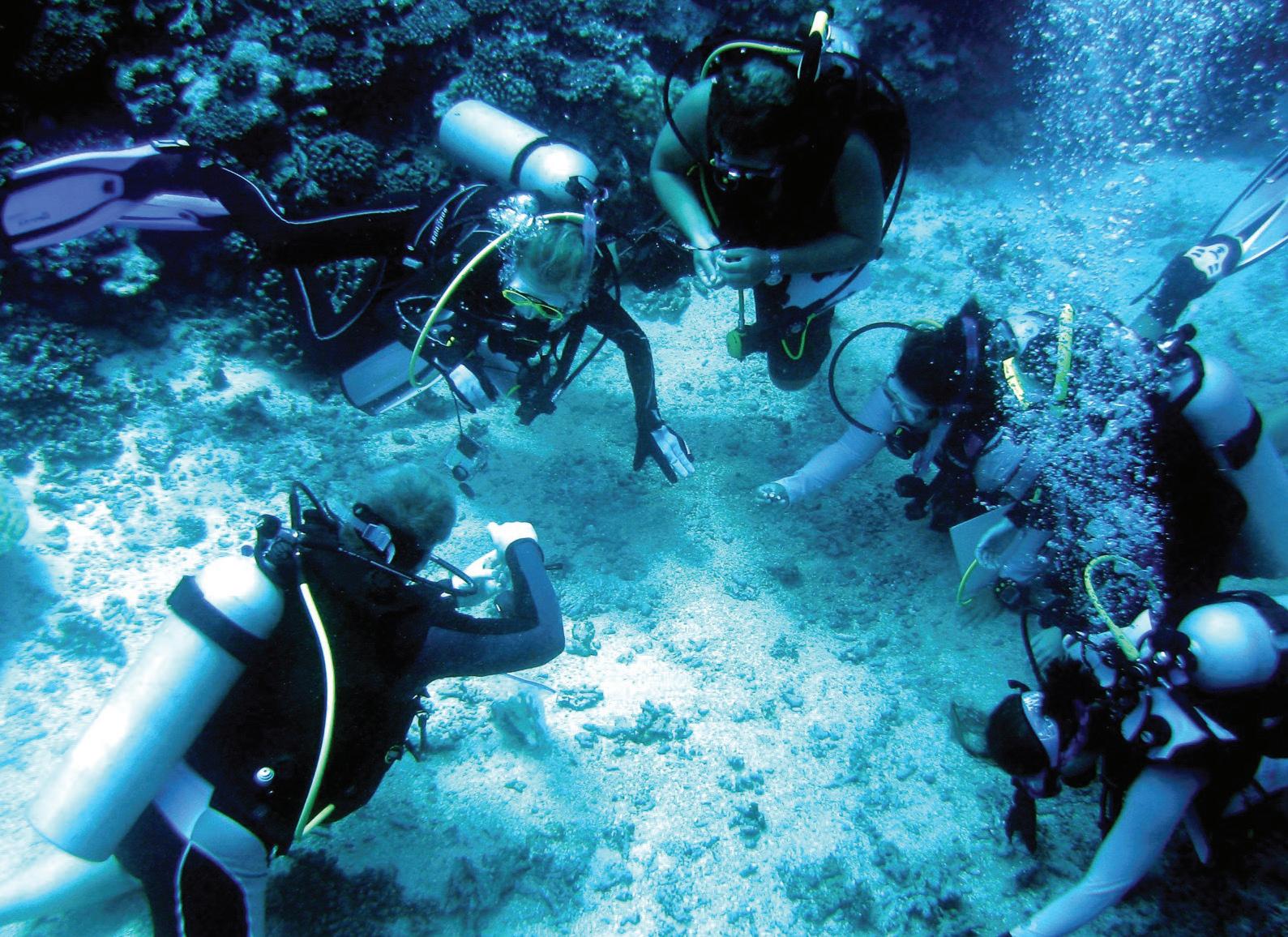
2 minute read
Share Your Change
“We have to understand what killed the corals and make sure that the cause is ameliorated before we do the restoration. One of the major causes of corals’ demise is increasing temperatures through global climate change. So, if we don’t change that, then we’re never going to get in front of this problem.”
~ William Precht ’79, coral
restoration expert and environmental advocate
A trip to Belizean coral reefs in the late 1980s was pivotal to their career trajectories, as the changes they witnessed to the coral reefs over a decade were so dramatic and devastating that they felt compelled to investigate what was happening to these critical elements in coastal marine ecosystems. This 35-year partnership has resulted in the pair authoring over 100 scientific manuscripts on coral reefs.
For a day job, Precht developed a career in environmental consulting, with expertise in environmental resource management, coastal and ocean policy, mitigation planning, marine and freshwater habitat restoration, and environmental regulation, but he never ventured far from his true love—coral reefs.
An Anchor Line for the Future
Precht said he studies history and ancient reefs to better understand what’s happening today.
“He literally discovered a disease—stony tissue loss disease—that was destroying certain corals along the East Coast, and it has spread to the Caribbean,” Aronson said. The disease attacks soft tissue of at least 22 species of reef-building corals, killing them within weeks or months of becoming infected.
The coastal marine ecosystem has seen a 95 percent decline in the coral population since the 1970s. Coral used to cover more than 50 percent of reefs 50 years ago, but today covers only 3 percent, which is problematic on many fronts. Coral reefs provide underwater structure for fish and aquatic life to hide from predators. Those fish also provide food for humans, and coral reefs are the feature attraction in a multibillion-dollar tourism industry worldwide, according to Precht.
“From a biodiversity standpoint, coral reefs are the rainforests of the sea,” Precht said. “There are more marine organisms that live on a coral reef than anywhere else in the marine environment.”
Today, as director of Marine and Coastal Programs with Dial Cordy and Associates, Inc., he helps restore coral reefs and marine ecosystems that have been damaged by things like oil spills and ship groundings. He also helps assess the environmental impact of coastal development, port expansions and military installations. After decades of collecting data about changes in the coral populations throughout Florida and the Caribbean, Precht said the evidence is clear that the dramatic decline of coral reefs is tied directly to global warming.
“We have to get global carbon emissions under control,” he said. “Failure to do that will eventually lead to the demise of not just coral reef ecosystems on a global scale, but other ecosystems, as well. While depressing, there are solutions, and we must act globally before it’s too late.”
Precht serves on the Scientific Advisory Panel of the Coral Restoration Foundation in the Florida Keys to restore damaged reefs by transplanting corals grown in nurseries.

“While we’re not fixing coral reefs at the ecosystem scale level yet, there have been dramatic advances in the genetics and coral husbandry techniques,” Precht said. “The more we learn about these ecosystems, the greater success we’re having and will have.”
This optimism drives him to work on solving these complex problems. But ultimately, Precht’s greatest contribution might come in the form of his ability to inspire and educate today and tomorrow’s leaders.
For example, all three of his daughters have pursued careers in sustainability: his eldest, Lindsey, is the assistant director of the Environment & Sustainability Department for the City of Miami Beach; his middle daughter, Chandler, is an adjunct professor and the associate director for the Sustainability Management + Science Programs at Columbia University’s Earth Institute; and his youngest, Madison, is a senior at Drew University majoring in environmental sustainability and journalism.
“My dad’s contributions to environmental science—particularly in the field of marine geology in the Caribbean region—are incomparable,” said Lindsey Precht. “He is a true conservationist and it shows in everything he does and all the lives he’s touched. I’m always amazed at how far his reach is and how many young marine scientists he has influenced.”
See more content about Bill’s research at magazine.oswego.edu.








